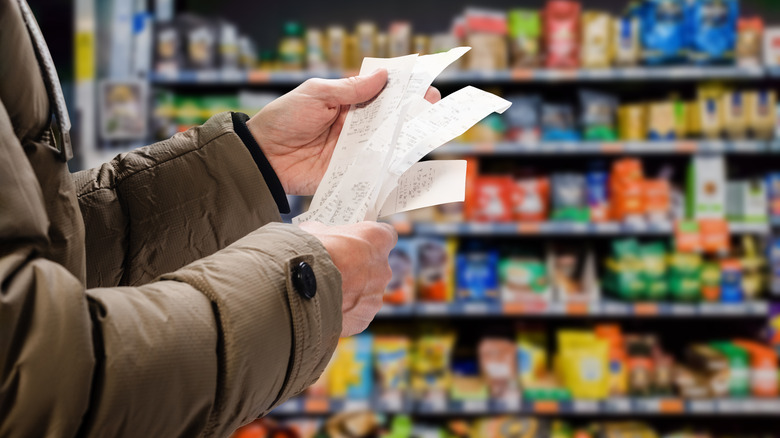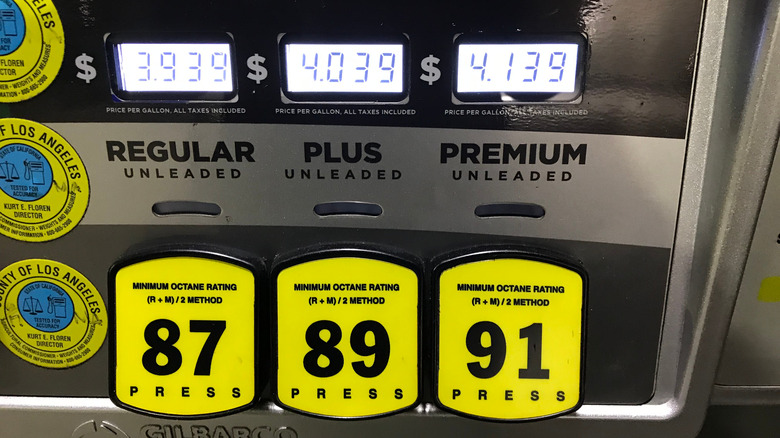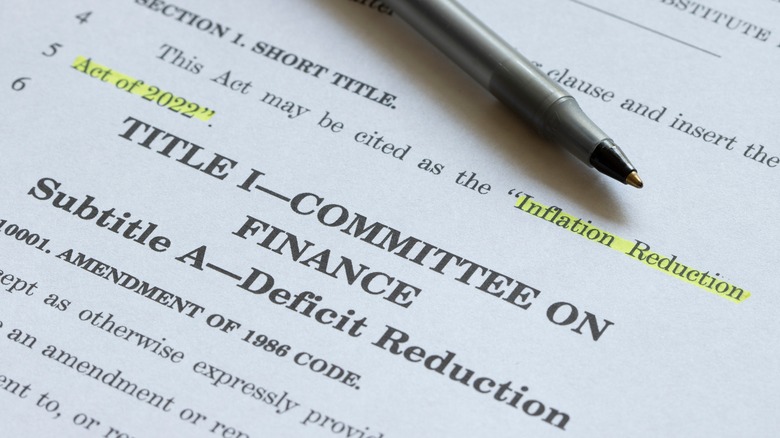The Phenomenon Of Grocery 'Greedflation' Explained
The inflation period that began in 2021 and shows no signs of resolving itself so far has dealt a devastating blow to nearly every industry. Still, its impact on the food sector has been the most frightening to the average consumer. No industry carries such significant stakes, controlling the sustenance we need to survive. A few foods have been untouched by inflation, but these are the exceptions to the rule. For the most part, our grocery bills have gotten more and more expensive.
Inflation has been presented as the singular explanation for this trend, and its impact is undeniable. A supply chain crisis fueled by events like COVID-19 and the Russo-Ukrainian War, combined with pandemic relief funds flooding the market, has driven prices through the roof. But there may be more to the story. In some instances, particularly within the food industry, prices have risen more than inflation can justify. Here, we find another, more insidious force affecting our wallets: 'greedflation.'
Businesses are using inflation as an excuse to raise prices
Greedflation occurs when companies raise prices at a higher rate than inflation to increase their profit margins. Then they excuse their actions by blaming all the price hikes on inflation. The current state of the economy has essentially given corporations a scapegoat to cover up price gouging — the practice of raising prices well beyond what the actual goods are worth — and it typically occurs in the aftermath of a state of emergency, such as a natural disaster or a global pandemic. Such scenarios are bound to upset the economy and place consumers in a vulnerable position where they might be unaware of their unfair treatment.
The most apparent evidence that greedflation is real lies in the fact that major corporations are reporting record-setting profits while, at the same time, unemployment and inflation-adjusted wages are trending downward. Some companies have all but declared that they are price gouging. In a January 2022 earnings call, Garth Hankinson, CFO of Constellation brands (which owns Corona and Modelo), stated, "We have a consumer set that skews a bit more Hispanic than some of our competitors. And in times of economic downturn, if you will, or weakness, they tend to get hit a little bit harder, and they recover a little bit slower. So we want to make sure that we're not leaving any pricing on the table. We want to take as much as we can."
What can be done about greedflation?
Greedflation is being discussed more than ever, as consumers and economists alike are raising the alarm. Many have blamed price gouging for the soaring price of eggs, while oil companies have taken similar heat for the rising cost of gas. Tackling the issue will be challenging, as each state sets its own regulations, and some set no regulations at all. Currently, 37 states have imposed a price gouging ban, and they typically go into effect only after states of emergency are declared. As of this writing, California, Maryland, Minnesota, New York, and Pennsylvania all have price-gouging bills. Even with tighter regulations, it will be immensely challenging to address the underlying forces behind greedflation.
The keystone in this whole conversation is the issue of corporate consolidation – single companies that have near-monopolies over their respective business sectors. For example, four companies control 80% of the American beef industry, three shipping companies handle 80% of seaborne cargo to the U.S., and a single company, Taiwan Semiconductor Manufacturing Co., produces nearly every microchip currently used worldwide. Megacorporations wield incredible power over the economy, and there is growing support for governments to crack down. Antitrust legislation, now being considered at both the state and federal levels, could be the key to curbing greedflation.


